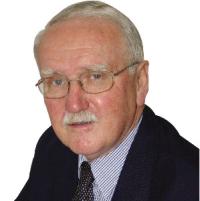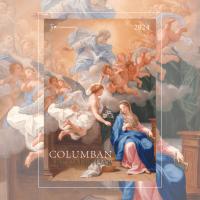
A couple of months ago I was invited to give a presentation on the Plenary Council at a Spirituality in the Pub session. I prepared what I thought was a good talk, but a couple of minutes into my presentation something, perhaps the Spirit, moved me to stop and ask my audience “what did they think?”. One man started with question, “Will the bishops listen?” It was quickly obvious that he was not alone. There was a great deal of scepticism in the room. So my “beautiful talk” remained on the lectern and we had ninety minutes of sharing.
Criticising bishops is a Catholic sport. It doesn’t require entrance fees or any special equipment. We have been enjoying it for decades. But unfortunately because of the Royal Commission, clericalism, the laity’s sense of being excluded from ministry and governance and a growing feeling of distrust in institutions across society we have now reached a serious level of distrust in the Church. In a few decades we have moved from uncritical respect to deep criticism. I believe a central function of the Plenary Council 2020 is to help us learn to trust one another.

That is why the process for the first year of preparing for the Plenary Council is devoted to Listening and Dialogue Encounters. Some of my friends suggested that we need social analysis and professional theological reflection etc. These may be needed before the Council is over but at the moment we need to share our stories, our questions, our doubts, our concerns and our spiritualties. Many people want to speak and to be listened to. If we don’t learn to respect and trust one another all the other changes will be in vain.
On World Communications Day 2014, Pope Francis wrote a letter on communication. He quotes Pope Benedict,
“Effective Christian witness is not about bombarding people with religious messages, but about our willingness to be available to others by patiently and respectfully engaging their questions and their doubts as they advance in their search for the truth and the meaning of human existence” (Benedict XVI, Message for the 47th World Communications Day, 2013).
Francis goes on to say, “To dialogue means to believe that the ‘other’ has something worthwhile to say, and to entertain his or her point of view and perspective. Engaging in dialogue does not mean renouncing our own ideas and traditions, but the claim that they alone are valid or absolute.”
Archbishop Coleridge in calling for the Plenary Council and responding to the Royal Commission has always stressed that it is a question of culture. “You can talk strategy and structure all you like, but if it doesn’t change the culture, you’re really adopting a cosmetic approach." You do not change culture through analysis or papers but through developing new practices and processes and getting to respect one another.
Pope Benedict shortly before he resigned warned us that, "The laity should not be considered as collaborators with the clergy, but as the people truly co-responsible for the life of the church."
Many lay people are freed and invigorated when they feel we clerics are genuinely listening and are inviting them to participate in an adult way. They love their church and want to be involved and have their say. They have theological and pastoral insights that don’t occur to us, clerics.
Pope Francis calls for a synodal church in which people, bishops and the Bishop of Rome are all listening to each other and to the Spirit, realising that everyone has something to learn.
The Plenary Council provides us with an opportunity and a process to draw close to one another, to share our faith, our insights and our questions. If we can all learn to share vulnerably and fully, people, priests and bishops, that will help us to become a listening church and help develop a culture of relatedness, freedom, co-responsibility and hope. That will be a different church and real cultural change.
Columban Fr Noel Connolly is a member of the Adult Formation Team with Catholic Mission Australia and is a member of the Facilitation Team for the Plenary Council 2020.
Listen to this article
Related links
- Read more from the current eBulletin
- Read more from The Far East, November/December 2018

